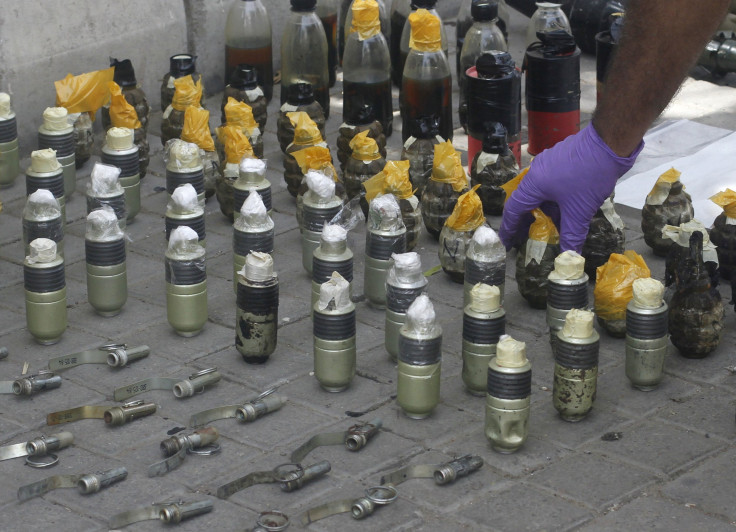Pakistani Taliban Leader Says Plan Was To Hijack A Plane At Karachi Airport, Warns Of 'Worse Attacks'

Update as of 5:38 a.m. EDT: The attack by the Pakistani Taliban on Karachi's Jinnah International Airport, which began late on Sunday night, was aimed at hijacking a plane, Reuters reported, citing a Taliban spokesperson.
"The main goal of this attack was to damage the government, including by hijacking planes and destroying state installations," Shahidullah Shahid, the Taliban spokesman said, according to Reuters. "This was just an example of what we are capable of and there is more to come. The government should be ready for even worse attacks."
The attack on the city's airport, which is the country's largest and busiest, left at least 28 people dead, including 10 militants who were reportedly armed with water, dried fruits and ammunition and were prepared for a lengthy siege, according to Reuters.
The report added that the militants, who were dressed like airport security staff, were armed with rocket-propelled grenades and automatic rifles, and had planned to advance to the adjoining passenger terminal before being foiled by security forces.
Update as of 2:30 a.m. EDT: Pakistani Taliban commander Abdullah Bahar has claimed that the attack on Jinnah International Airport in the Pakistani port city of Karachi, is to avenge the death of Hakimullah Mehsud, the militant outfit's former head who was killed in a drone attack in November, CNN reported Monday.
"As long as we are breathing, our attacks will be continuing 'til the end of our lives," Bahar said, according to CNN, which added that the attack on the insurgency-torn country's biggest and busiest airport, had so far killed at least 28 people.
This story has been updated to include a comment from a Taliban spokesperson.
Gunfire at the Jinnah International Airport in Karachi, Pakistan, resumed Monday morning, involving unidentified gunmen who injured a Pakistan Rangers personnel, while a loud explosion was also heard, according to DawnNews, a local newspaper.
The report of fresh gunfire came on Monday morning, hours after security forces claimed an attack, which claimed the lives of 13 people, had ended after the Pakistani army reported that it had killed all 10 gunmen in a protracted gun battle that lasted for hours on Sunday. The Tehreek-e-Taliban Pakistan, or TTP, claimed responsibility for the attack, reports said, citing Geo TV, a local television network.
“We have relaunched the operation and called in additional troops,” Sibtain Rizvi, a spokesman for the Rangers paramilitary force said, according to DawnNews, which added that security forces had conducted a search operation early Monday and recovered five sub-machine guns, three suicide jackets, 12 petrol bombs and two rocket launchers.
A spokesperson for Inter Services Public Relations, a government-run agency, had reportedly said that Chief of Army Staff General Raheel Sharif "congratulated participating troops for a well coordinated, successful operation eliminating all militants.” The attack on Karachi Airport’s old terminal on Sunday night killed 23 people, including 10 gunmen who launched the offensive, while the other 13 dead mostly included security guards and an airline worker, according to reports. At least 14 people were also reportedly injured after the attack.
"We carried out this attack on the Karachi airport and it is a message to the Pakistan government that we are still alive to react over the killings of innocent people in bomb attacks on their villages," Shahidullah Shahid, a Pakistani Taliban spokesman said, according to Reuters.
All flights at the Karachi Airport have been suspended while other airports in Pakistan have been put on high alert, according to the Hindustan Times.
Meanwhile, unconfirmed reports citing Pakistani officials as saying that Indian-made weapons were found at the site generated a debate on the Twittersphere, which also included tweets from Hafiz Saeed, a leader of a group suspected to have planned the November 2008 attack on Mumbai, which killed 166 people.
#KarachiAirport is an attack on Pakistan. Modi's new security team is behind this act of war by India. Nation knows the real enemy.
— Hafiz Muhammad Saeed (@HafizSaeedJUD) June 9, 2014We condemn horrendous act of terrorism at #KarachiAirport in severe words. Government must end exchange of gifts with India; show spine.
— Hafiz Muhammad Saeed (@HafizSaeedJUD) June 9, 2014© Copyright IBTimes 2025. All rights reserved.





















